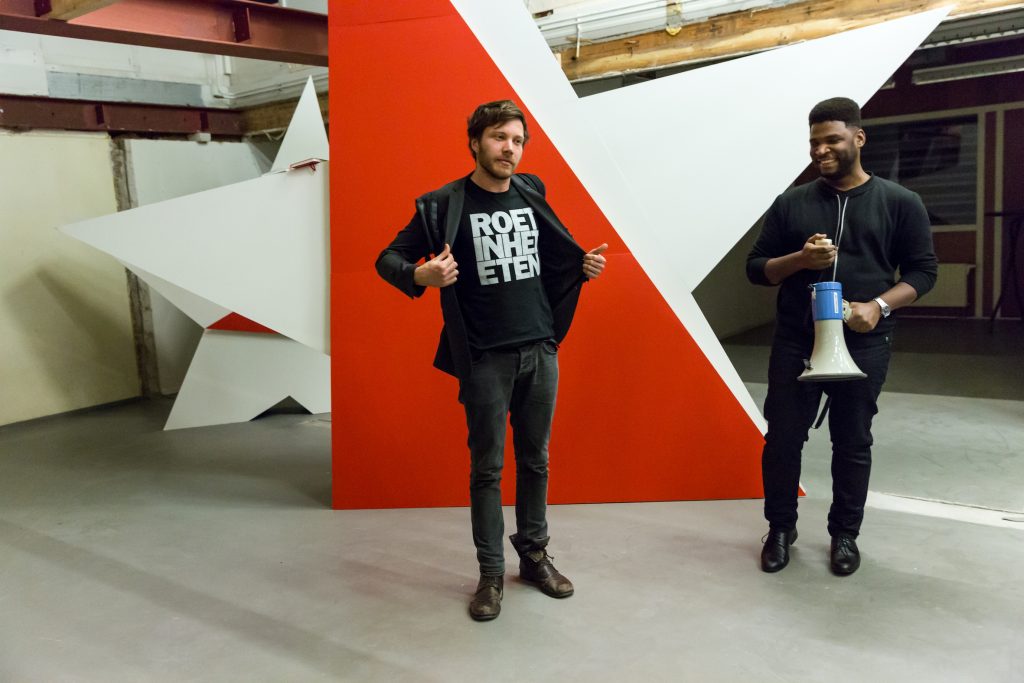Quinsy Gario
Quinsy Gario is a visual and performance artist from the Dutch Caribbean. His most well-known work, Zwarte Piet Is Racisme (2011–2012), critiqued the general knowledge surrounding the racist Dutch figure and practice of Zwarte Piet (Black Pete), later bringing into the open the governmental institutional support that keeps the figure alive in the Netherlands. He has an academic background in gender studies and postcolonial studies and is a graduate of the Master Artistic Research program at the Royal Academy of Art, The Hague. In 2017 he received a Humanity in Action Detroit Fellowship. Gario is a board member of De Appel, Keti Koti Table, and The One Minutes, a member of the pan-African artist collective State of L3, and is a recurring participant of the Black Europe Body Politics biannual conference series.


